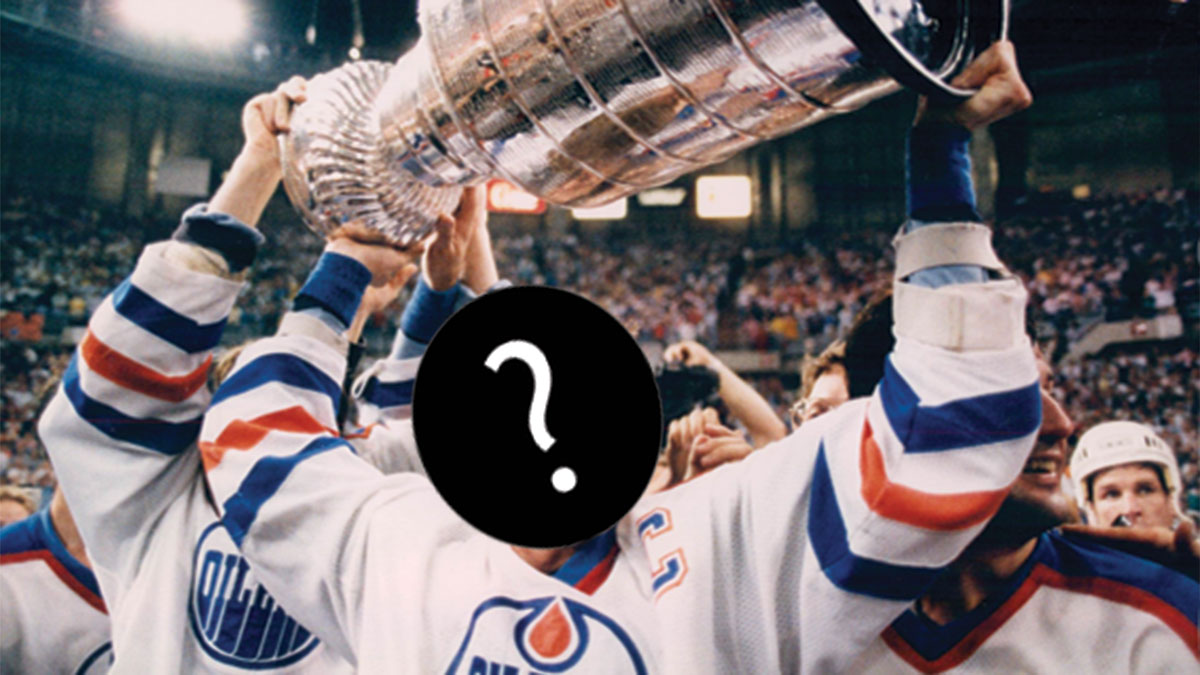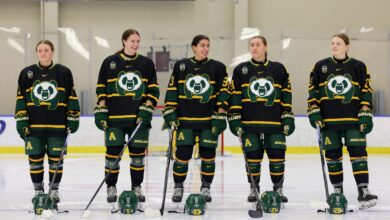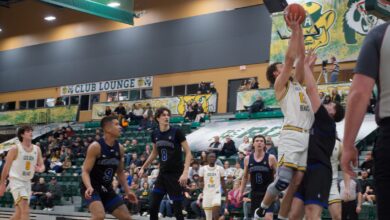What if Wayne Gretzky hadn’t dodged the 1979 NHL draft?
 Supplied
SuppliedWayne Gretzky has the most stacked trophy case on the planet.
I mean, the guy has an entire Wikipedia article titled “List of career achievements” dedicated to his incredible career. He owns just about every scoring record in the NHL, and he’s won the Stanley Cup four times. He’s also a nine-time Hart Trophy winner for the league’s Most Valuable Player, and he’s eight-time NHL First Team All-Star.
There’s one trophy, though, that he never won: the Calder Trophy for the league’s top rookie.
It certainly wasn’t because there was a better rookie. In Gretzky’s debut season with the Oilers in 1979-80, he scored 51 goals and 137 points and was awarded with the Hart Trophy. The honour of top rookie was given to Boston Bruins’ defenceman Ray Bourque, who had a respectable 17 goals and 65 points.
This wasn’t some anti-Gretzky league conspiracy, though. Gretzky was ineligible for the Calder Trophy because he wasn’t technically a rookie since he had played for the Oilers in the World Hockey Association before they were absorbed into the NHL that season. He was supposed to be eligible for the 1979 NHL Entry Draft because the league had just lowered the drafting age from 20 to 18 that year, but Peter Pocklington, the owner of the Oilers at the time, managed to find a loophole that would forever change the landscape of the NHL. What would have happened if the league hadn’t allowed Gretzky to dodge the draft? The NHL wouldn’t be the same, and there’s a decent chance the Oilers wouldn’t exist today.
It was a tricky situation because teams being absorbed from the WHA in the NHL merger were allowed to protect a handful of players to begin building their team around. Since Gretzky was technically draft eligible due to his age, he was barred from being one of the players the Oilers protected. Pocklington argued that he should be able to keep Gretzky because he had him signed to a personal services contract rather than a standard player contract, meaning that he would have to void the deal himself to be eligible for the draft, otherwise the Oilers and Pocklington would retain his services.
So Gretzky, being an incredible talent that could change the fortunes of any franchise, was given the choice to either join the Oilers in their transfer, or be selected first overall by the struggling Colorado Rockies. No, not the Major League Baseball team, there was a really, really bad team in the NHL called the Colorado Rockies once upon a time. They only existed for six years and they only made the playoffs once despite having the sixth worst record in the league that season.
Gretzky chose the Oilers and the rest is history. The Rockies ended up selecting defenceman Rob Ramage with the first pick, who was a good player in his own right, but represented a very bitter consolation prize to the best player ever to play the game. The Oilers and Gretzky went on to win four Stanley Cups together in between 1979 and 1988 forming arguably the most dominant dynasty in the history of professional sports over that time. The Rockies, on the other hand, were moved to New Jersey and are now known as the Devils. Maybe you’ve heard of them.
So how does this affect the league? First of all, the Oilers would have been far from the team they were with Gretzky putting up video game numbers year after year. It’s hard to say if other great forwards like Mark Messier, Jarri Kurri, and Glenn Anderson would have had Hall of Fame careers without Gretzky, which also begs the question as to whether the team would have been good enough to ever win a Stanley Cup without him. They did win once after he was traded to the Los Angeles Kings, but it’s impossible to know what the team would have been like without him.
Let’s say that his presence was missed so much that the team was about as successful as the other three teams who merged into the league with them in 1979. The Hartford Whalers, the Quebec Nordiques, and Winnipeg Jets (the first version) all enjoyed a reasonable amount of success, but never managed to win a Stanley Cup or play at the level the Oilers did throughout the 1980s. Now the Jets are in Phoenix, the Whalers are in Carolina, and the Nordiques are in Colorado and the Oilers are the only team left standing from the 1979 WHA-NHL merger. Had it not have been for Gretzky, there’s a chance the Oilers would have shared the same fate as their merger cousins due to a lack of success both on the ice and financially.
What does that mean for the Rockies? There’s a good chance the Rockies wouldn’t have stayed in Colorado, largely because they had been purchased in 1978 by a businessman named Arthur Imperatore who had intentions of moving the team to New Jersey as soon as the city had a suitable stadium. He ended up selling the team in 1982 to a millionaire in New Jersey, but if the Rockies had been gifted Gretzky, the team would be infinitely more marketable and valuable, meaning Imperatore would have likely hung on to them.
I really doubt getting Gretzky would have changed Imperatore’s mind about the Rockies playing in Colorado, but it’s a lot more likely the franchise would have survived thanks to having the best player in the league pull the team up from the pits of oblivion. If that was the case, and the Rockies continued to exist thanks to Gretzky, the Nordiques would have been moved elsewhere in 1995 and the Colorado Avalanche wouldn’t exist today. It’s impossible to say how it all would have played out, but my guess is that Gretzky would have pulled something similar to what Eric Lindros did in 1991 when he refused to play for the Nordiques who drafted him first overall. Lindros was eventually traded to the Philadelphia Flyers, because they were more marketable, it was an english speaking city, and it was ultimately better for his career. I suspect Gretzky would have been dealt to another team for a massive package of players and draft picks who would eventually become members of the New Jersey Devils. Whatever team Gretzky was traded to would have become the dynasty of the 1980s, while the Oilers would have had a mediocre level of success like the Jets, Nordiques, and Whalers did. There’s a fair chance the team would have been moved in the 1990s like the other three were, but I’m sure that a struggling franchise like the Atlanta Thrashers or Phoenix Coyotes would have filled Northlands Colosseum before too long.
I’m happy it worked out the way it did. Thank god for personal services contracts.





You’ve missed the real story here. The story behind this draft was that Sam Pollock made a brilliant trade with Colorado on Sept. 13, 1976 when Wayne Gretzky was 13 years old. Colorado got Ron Andruff, Sean Shanahan and a 1980 No. 1 pick (Paul Gagne). Montreal got the option, which it exercised, of switching 1980 No. 1 picks. Pollock wanted the top pick when Gretzky turned draft eligible at age 18 in 1980 and gambled that Colorado would be that team. And he won that gamble. But Gretzky had already turned pro signing a personal services contract with Nelson Skalbania the owner of the WHA Indianapolis Racers and later with Peter Pocklington. As such he could not legally be compelled to play for Montreal or any NHL team that drafted him. As such Gretzky was ruled exempt from the draft.